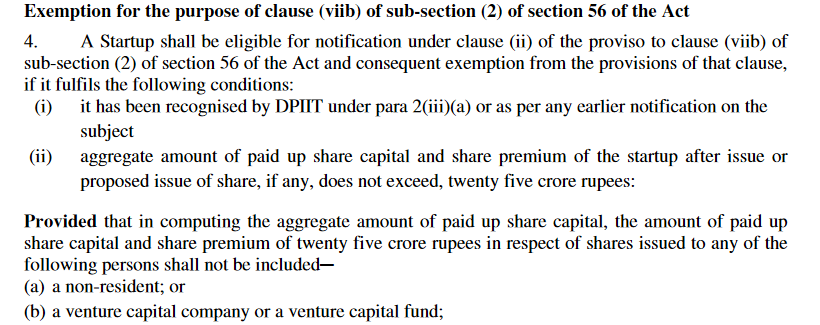While startups breathed a sigh of relief after the exemption from Angel Tax in 2019, the dreaded levy on capital receipts is now back
In the Finance Bill, 2023, proposed changes will remove the exemption for foreign funds and non-resident investors who will have to pay a tax on difference between capital raised and the fair value of securities sold
Amid the ongoing severe funding decline, the proposed expansion of Angel Tax can potentially further slow down investments, or even force startups to flip outside India
Perhaps it’s time to call it by a new name, because the new proposed ambit of the so-called ‘Angel Tax’ in the Finance Bill, 2023 is likely to have consequences far and beyond just angel investors and could impact Indian startups across sectors and stages.
In private conversations and investor communities, there are heated debates, tons of confusion and a hope (albeit guarded) that this cannot be right. The government cannot possibly be shooting itself in the foot when it comes to foreign direct investments (FDI), they say. The potential return of an Angel Tax has many of the most active Indian startup investors spooked.
But what exactly is going on and what is the Angel Tax for Indian Startups? We are looking to explain in an FAQ style today, starting at the very beginning.
What Is Angel Tax?
Referred to colloquially as Angel Tax, this rule is described in Section 56(2)(viib) of the Income Tax Act, 1961. This clause was inserted into the act in 2012 to prevent laundering of black money, roundtripping via investments with a large premium into unlisted companies. Essentially it’s a tax on capital receipts, unique to India in the global context.
The tax covers investment in any private business entity, but only in 2016 was it applied to startups. As more and more new-age tech startups started raising VC funding, they came under the IT department scrutiny. These funding deals often saw investors paying a premium above the face value or the fair market value of securities, and therefore were taxed as income for the startup.
The Angel Tax is being levied on startups at 30.9% on net investments in excess of the fair market value. And many startups were retrospectively assessed for this tax, years after their fundraising. Naturally, this raised a lot of concerns in the ecosystem, since most did not have the cash at hand to pay this tax bill and therefore risked being prosecuted.
Between 2016 and 2019, startups urged the government to add exceptions that would allow them to be exempt from the Angel Tax.
So, Is It Still Applicable For Startups?
The answer to this depends on the startup. In March 2019, after some pressure from the startup ecosystem, an exemption was provided to startups under certain conditions, which are specified here and reproduced below:

Unlike the tax holiday, this exemption does not need validation by the Inter-Ministerial Board of Certification, which was set up by the Department of Promotion of Industry & Internal Trade. So far, only 1048 startups from nearly 90K DPIIT-registered startups have been validated by the board, or just over 1% of the total base.
However, the key condition for exemption is that the aggregate amount of paid up share capital and share premium of the startup after issue or proposed issue of share does not exceed INR 25 Cr.
This meant resident angel investors who typically invest a small amount of seed money were spared the Angel Tax.
Besides this, there was a further exemption for SEBI-registered alternative investment funds (AIFs) and capital raised from overseas investors, since the primary target was roundtripping of funds from and to India.
So Have These Exemptions Changed In 2023?
Not all of them, startups are still exempt from angel tax when the total aggregate amount for the deal is under INR 25 Cr, and domestic non-AIFs investing in Indian startups still need to pay a tax on their deals.
What’s being amended in the Finance Bill, 2023 is the exemption for overseas investors, which means any offshore fund investing in India will get impacted.
Oh, So It’s Just For Offshore Funds?
Yes, but this includes some of the largest VC investors in India, including unicorn makers such as Tiger Global, Sequoia Capital, SoftBank, Accel, as well as early stage investors such as Y Combinator, AngelList and others.
The exempted pool of AIFs includes 1052 investors as of February 2023, many of whom do not invest in startups. As per estimates from AIFs make up around 10%-15% of startup investments, with some even putting their share under 10%.
Given the complicated nature of startup fundraising, it’s not always clear how much a particular investor’s exposure is in any capital infusion, especially since each round typically involves multiple investors.
It’s not possible to track the extent of AIF investments vs offshore funds or non-resident investors as company filings pertaining to fund infusions are often delayed by many months and even then the actual invested amount may differ from any public claims, as reported in the case of BYJU’S last year.
What Is The Purpose Of The Angel Tax For Indian Startups?
Given the complicated nature of VC fundraising with offshore entities, multiple limited partners and blind pools, historically, there has been some element of money laundering or round-tripping under guise.
By removing the exception for overseas funds, the new proposed Angel Tax is further looking to track such transactions, where Indian individuals are LPs in blind pool foreign funds. The Indian government does not always have the visibility into the LPs that make up foreign funds, whereas it can ask AIFs for more details pertaining to their investors.
Last year, it was reported that SEBI had asked AIFs to disclose whether their sponsors are domestic or overseas entities.
Some investors have claimed that the 2023 Finance Bill’s proposed changes are the government’s way of getting offshore funds to set up AIFs in India under the SEBI ambit.
But a partner at one of the most active seed and growth funds in the country believes that restrictions on FDI or capital flows will be counterproductive for investments. Rather than global investors launching India-based AIFs, they might pressure Indian entrepreneurs and startups to move overseas and invest in those entities. In effect, it will make it easier for startups to take the path of flipping.
How Will Angel Tax Disrupt Startup Funding?
Ironically, a day before the Finance Bill was tabled, the Economic Survey 2022-23 had proposed steps to arrest such flipping and accelerate reverse flipping. This had fuelled some optimism within the Indian startup ecosystem about making it less expensive for unicorns to move their HQs to India.
As per Inc42 data, 20 out of the 108 unicorns in India are registered overseas and therefore, the value and IP created by Indian startups is locked up in those geographies.
A day after praising the Economic Survey’s mention of reverse flipping, Siddarth Pai, founding partner of 3one4 Capital, warned about the consequences of the expanded scope of the Angel Tax.
“This will have far-reaching implications for the Indian startup ecosystem as a majority of the funds are raised from overseas investors, whose investments will now be subject to Angel Tax. This move may push many startups to redomicile overseas.”
At the moment, it’s too soon to tell whether the Finance Bill will be notified in its existing form. If so, then these proposals will become part of the Income-Tax Act, 1961 and come into effect from FY23. However, it’s possible that the Finance Ministry further clarifies the exceptions under this new, potentially more ominous avatar of ‘Angel Tax’.
Given the massive downside for FDI under the current clauses, there’s hope among the investor class of more clarifications.
Anand Lunia, partner at India Quotient, said, “The inclusion of offshore VC funds as non-residents for the purpose of angel tax comes as a surprise because surely the government doesn’t want to impact FDI flow. This will also create issues with multiple valuation methods for FEMA and tax purposes. The government needs to clarify this quickly.”
Will Startups See A Higher Disclosure Burden?
Even beyond the issue of taxation, the compliance burden on startups will potentially increase significantly under the new rules.
Essentially, while an offshore fund like Sequoia or Tiger Global may be investing in the same companies as SEBI-registered AIFs such as Chiratae Ventures, Blume Ventures, Omnivore, Fireside Ventures, the rules would apply differently for these investors. And this is where the disclosure burden on startups also increases.
The timing of this potential tax is most worrying since it coincides with the ongoing startup funding slowdown. Valuations have already slumped from the peak of 2021 and since the Angel Tax covers fair market value of securities, it is likely to lead to more corrections in startup valuations.
Despite the government’s bluster about improving the ease of doing business in India, entrepreneurs and investors are concerned that applying strict taxes on capital receipts without adequate exceptions will lead to startups moving overseas.
The next few weeks will determine how severe the impact will be and we are looking at the second and third order impacts of the revamped Angel Tax within the next couple of days.
































 Ad-lite browsing experience
Ad-lite browsing experience